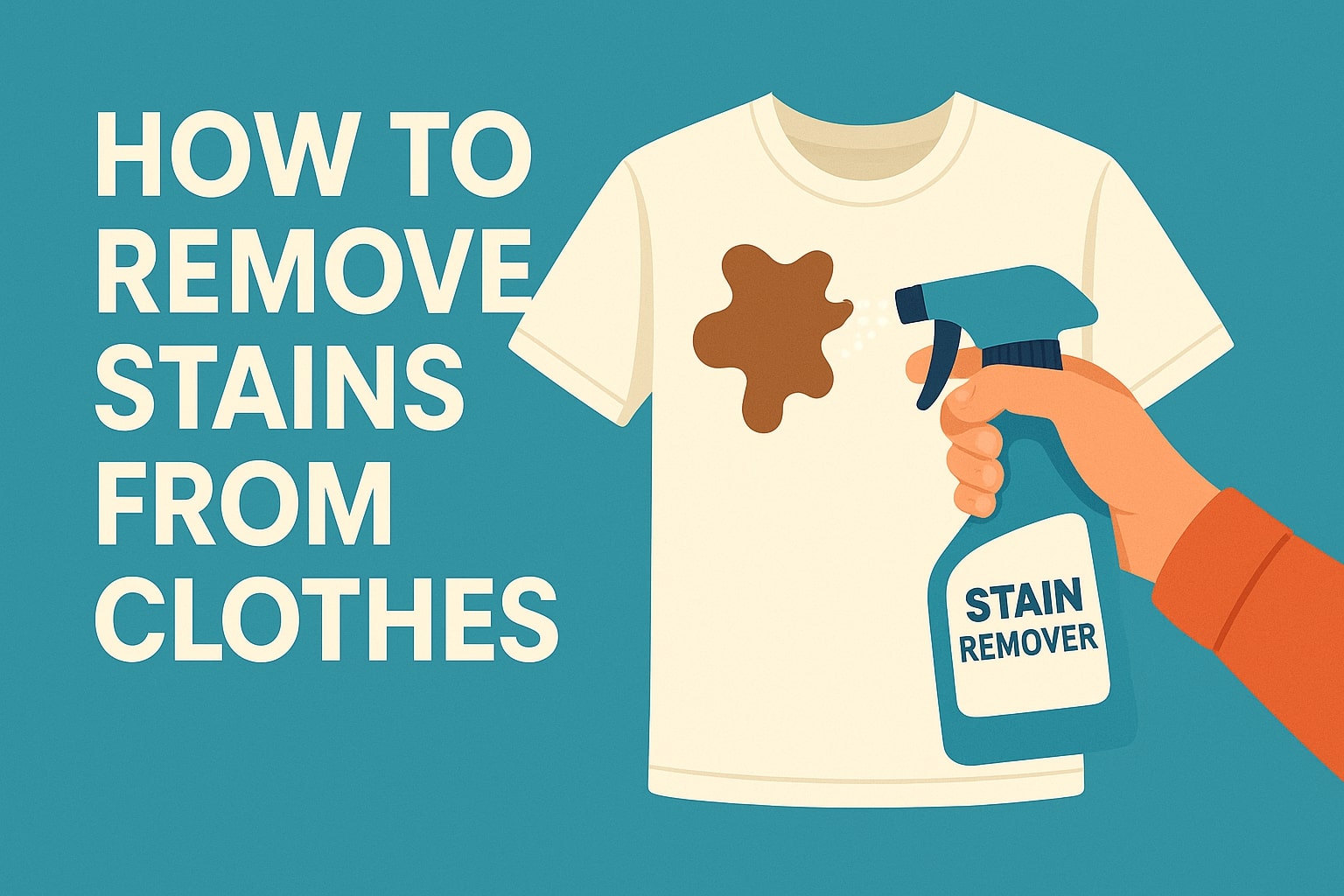What Are the Different Types of Stains and How Do You Identify Them?
Understanding how to remove stains from clothes begins with identifying the five main stain categories: protein-based, oil/grease, tannin, dye, and combination stains. Protein stains include blood, sweat, and food proteins - these require cool water and enzymatic cleaners. Oil and grease stains repel water and need degreasing agents or solvents for effective removal.
Tannin stains come from coffee, tea, wine, and fruits - they respond well to acidic treatments. Dye stains from makeup, ink, or colored foods often require specific solvents. Combination stains like chocolate or salad dressing contain multiple elements and need multi-step treatment. Quick identification prevents using wrong treatments that can set stains permanently, making them nearly impossible to remove later.
📺 Featured Video

How To Remove (Almost) Every Stain - A Dry Cleaners Guide #laundry
by Jeeves NY
What Are the Best Home Remedies for Common Stains?
The most effective approach to how to remove stains from clothes involves using liquid laundry detergent as a pre-treatment for most stains. Apply detergent directly to the stain, work it in gently, and let it sit for 5-10 minutes before washing. For grease stains, dish soap works exceptionally well due to its degreasing properties.
Sweat and yellow stains respond to hydrogen peroxide (3% solution) or oxygen bleach treatments. Coffee and wine stains benefit from immediate cold water flushing followed by white vinegar treatment. Foundation and makeup stains need makeup remover or micellar water applied first, then regular washing. Always test treatments on inconspicuous areas first, and never use hot water on protein stains as it can set them permanently.
📺 Featured Video

How To Remove Sweat Stains - A Dry Cleaner's Guide #laundry
by Jeeves NY
When Should You Seek Professional Help for Stain Removal?
Knowing when professional help is needed can prevent damage when learning how to remove stains from clothes. Delicate fabrics like silk, wool, or dry-clean-only garments require professional treatment to avoid fabric damage. Large or set-in stains, especially on expensive items, benefit from professional spotting boards and specialized solvents.
Ink stains often prove challenging for home treatment and may require professional solvents. When home treatments fail or make stains worse, stop immediately and consult professionals. Oil-based paint, permanent marker, or bleach damage typically need expert intervention. For valuable garments or when uncertain about fabric care, professional cleaning prevents costly mistakes and ensures the best possible outcome for stain removal.
📺 Featured Video

How Dry Cleaners Remove Tough Stains - The SPOTTING Board #dryclean #drycleaning
by Jeeves NY
